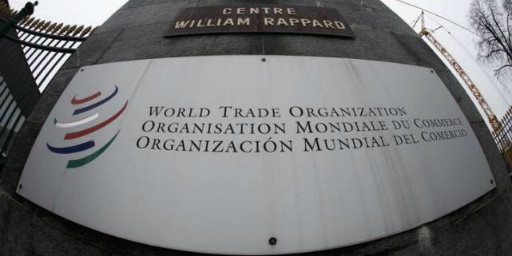Any day now, something called the Trade Facilitation Agreement will enter into force. There will be no meeting of Presidents, no gala summit. World leaders are unlikely to give speeches. And yet it will unlock economic opportunities for millions of people around the world, reduce poverty and spur economic development. It is estimated that the agreement has the potential to boost global exports by up to $1 trillion.
The TFA is a deal to reduce the “friction” that ups the costs of trade and slows it down. The paperwork, the customs bureaucracy, the incompatible technical systems. Full implementation of the TFA would reduce trade costs by an average of 14.3 per cent, with developing countries having the most to gain. The TFA was agreed at the WTO summit in Bali in 2013 and enters into force when two thirds of the WTO membership ratify it. That is expected to happen very soon, given that 108 out of 110 WTO members have already ratified.
The TFA and the other multilateral trade agreements reached by the World Trade Organisation and its predecessor, the GATT, have played a central role in lifting billions out of poverty. Globally, the number of people living in extreme poverty has declined by more than half, falling from 1.9 billion in 1990 to 836 million in 2015. Most of that progress has occurred since 2000. And over half of that progress took place in one country alone: China. It was not aid but trade, and China’s opening up to the world, that achieved this. China joined the WTO in 2001.
Like all trade agreements, the TFA is complex and technical. It will not win much credit from its beneficiaries. Traders will be pleased when they discover that the costs and bureaucracy of doing trade has fallen. So too will consumers, when they get access to more diverse, better and cheaper goods. But none of them are likely to thank the WTO. On the other hand, those affected by the disruption that trade can bring very much have other multilateral and regional trade agreements in their sights.
The United Kingdom was one of the eight founding members of the GATT in 1947. The British economist and statesman John Maynard Keynes was one of its intellectual godfathers. He had helped draft the charter for the more ambitious International Trade Organisation that ironically – given the leading US role behind the idea – failed because the US Senate refused to ratify it.
For the last 43 years, the UK’s role in international trade negotiations has been carried out on its behalf by the European Union and its predecessors, the EC and the EEC. As we leave the EU, the British Government has made clear that the UK intends to resume its role as a champion of the global trading system and of the benefits it brings for our own citizens and for citizens around the world, particularly in developing countries.
Championing free trade means not only doing more to explain its benefits. It also means doing more to support communities and people through the transitions that it brings, and provide the infrastructure for future economic development.
In the developing world, it means doing more to help countries, businesses and individuals access in practice the benefits that these trade agreements open up for them in theory. That is why DFID launched its first ever Economic Development Strategy last month. This focuses on trade as an engine for poverty reduction, and using our voice in the WTO to argue for better and fairer trading rules for developing countries and to strengthen our approach to “aid for trade”. DFID’s Trade and Investment Advocacy Fund will help developing countries to participate in and reap the benefits from international trade and investment deals. And the UK will continue to open its markets to the world’s poorest countries, bringing trade opportunities to those that need it most, and encourage others to do likewise.
Today those who support global trade are on the defensive. But as the UK again resumes a leading role in international trade, we plan to lend our voice to their cause, and to the billions around the world who can benefit from a vibrant global trading economy.

